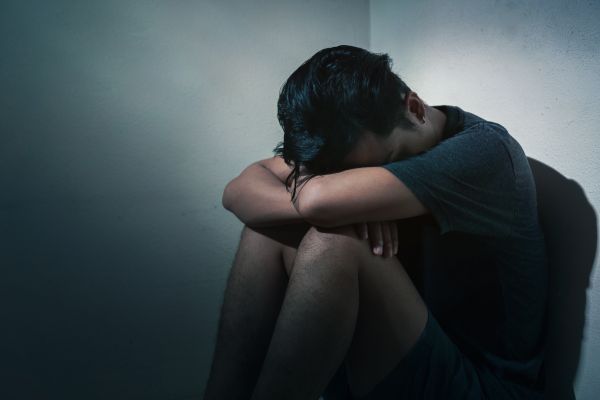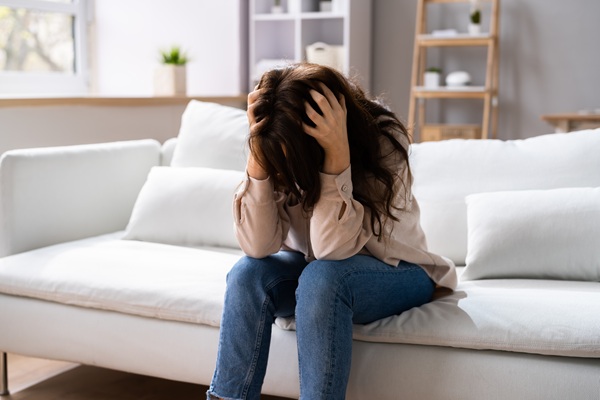5 Signs of PTSD

PTSD can be an incredibly concerning condition, and all too many cases often go untreated simply because the symptoms were not recognized. It is crucial to be able to recognize the signs of PTSD and seek treatment as soon as possible to ensure a full recovery in a timely manner.
PTSD early symptoms
While each person who struggles with PTSD may have a different experience, there are specific early symptoms that are common in most instances. The following are five of the more common signs of PTSD to be mindful of and check for after yourself or someone around you experiences a traumatic event.
Memories of the traumatic event
All too often, patients tend to think more about events that were unpleasant for them. While most instances of a bad experience heal over time and the memories become easier to deal with, those who experience a traumatic event and develop PTSD often have memories that make them feel as if they are reliving the experience, and that it is happening to them or they are witnessing it all over again.
Avoid reminders of the event
Those who struggle with PTSD often have a hard time being around or exposing themselves to things that remind them of the event, which can be in the form of a person, place or an activity. Additionally, many with the condition also try to avoid talking about the event and begin to isolate themselves from the company of others.
Negative behavioral changes
The behavior in patients before they develop PTSD and after they develop the condition are often very different, and behavioral patterns such as drinking more, having angry outbursts and an inability to concentrate may develop. If these symptoms are present in the weeks or months following a traumatic event, then the patient may be suffering from PTSD.
Memory and emotional complications
Many PTSD patients begin to think more negatively about themselves after the traumatic event, and they may feel hopeless, uninterested and depressed. In addition, many who struggle with the condition may remember the event differently than how it actually occurred, although the thoughts about the traumatic episode remain constant in their mind.
Sleep complications
One of the more common symptoms in PTSD patients is an inability to sleep. Many of the intrusive memories occur in the form of nightmares, so the person may be hesitant to fall asleep as a result, or they may be unable to fall asleep despite wanting to be able to do so. Subsequently, the other signs of PTSD often worsen as a result of becoming deprived of proper sleep.
When to consider PTSD treatment
If you or someone you know suffers from signs of PTSD after experiencing or witnessing a traumatic event, then it is important seeing a medical professional for diagnosis and treatment. PTSD is treatable after identifying the symptoms and when treatment is sought after in a timely manner, allowing the patient to make a healthy recovery and get back to living life in a normal manner once again.
Request an appointment here: http://www.hopetmsofny.com or call Hope TMS and Neuropsychiatric Center at (646) 578-8152 for an appointment in our New York office.
Check out what others are saying about our services on Yelp: Read our Yelp reviews.
Recent Posts
Relationship obsessive-compulsive disorder (ROCD) is a distinct subtype of OCD that can cause persistent doubts and distressing thoughts about romantic relationships. OCD treatment can help individuals manage their intrusive thoughts and compulsive behaviors associated with ROCD. Understanding and having access to the available treatment options can help individuals regain control over their thoughts and the…
Smoking cessation is one of the best things a person can do for their health. Still, despite the ill health effects of smoking and the clear benefits of quitting, many people find it nearly impossible to quit on their own. If you are finding it hard to quit, gain insight into why you may be…
Transcranial magnetic stimulation (TMS) is a cutting-edge treatment that offers hope for people dealing with depression and anxiety, especially those who have not found relief with medication or therapy. TMS is a non-invasive procedure that uses magnetic fields to stimulate specific areas of the brain involved in mood regulation. This innovative approach is helping many…
Everyone experiences occasional anxiety, but an anxiety disorder involves persistent, excessive worry and physical symptoms that can disrupt daily routines, relationships, and overall well-being. If left untreated, these symptoms can intensify, impacting mental and physical health. Seeking help from a psychiatrist can be a significant first step toward effectively managing anxiety disorder symptoms and getting…


